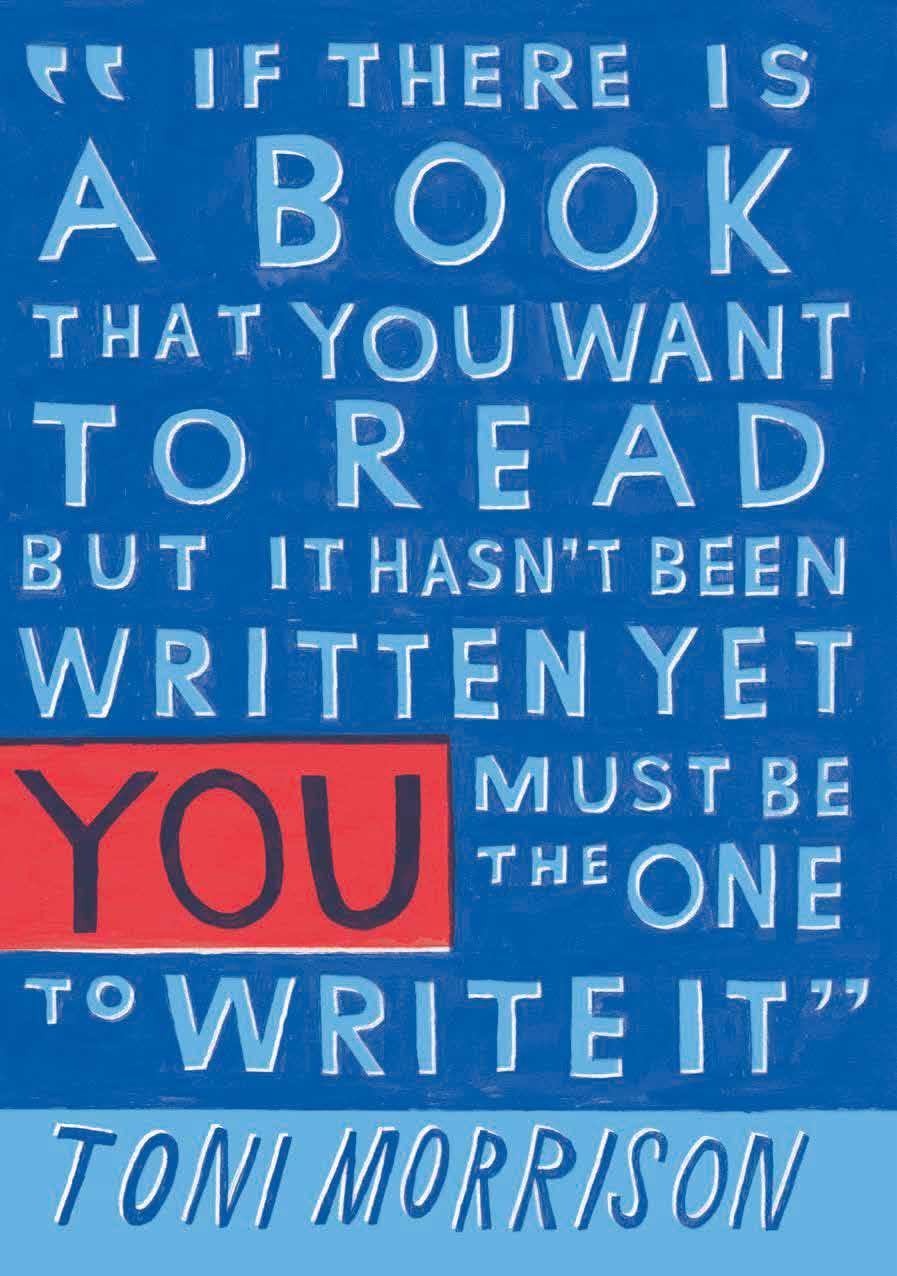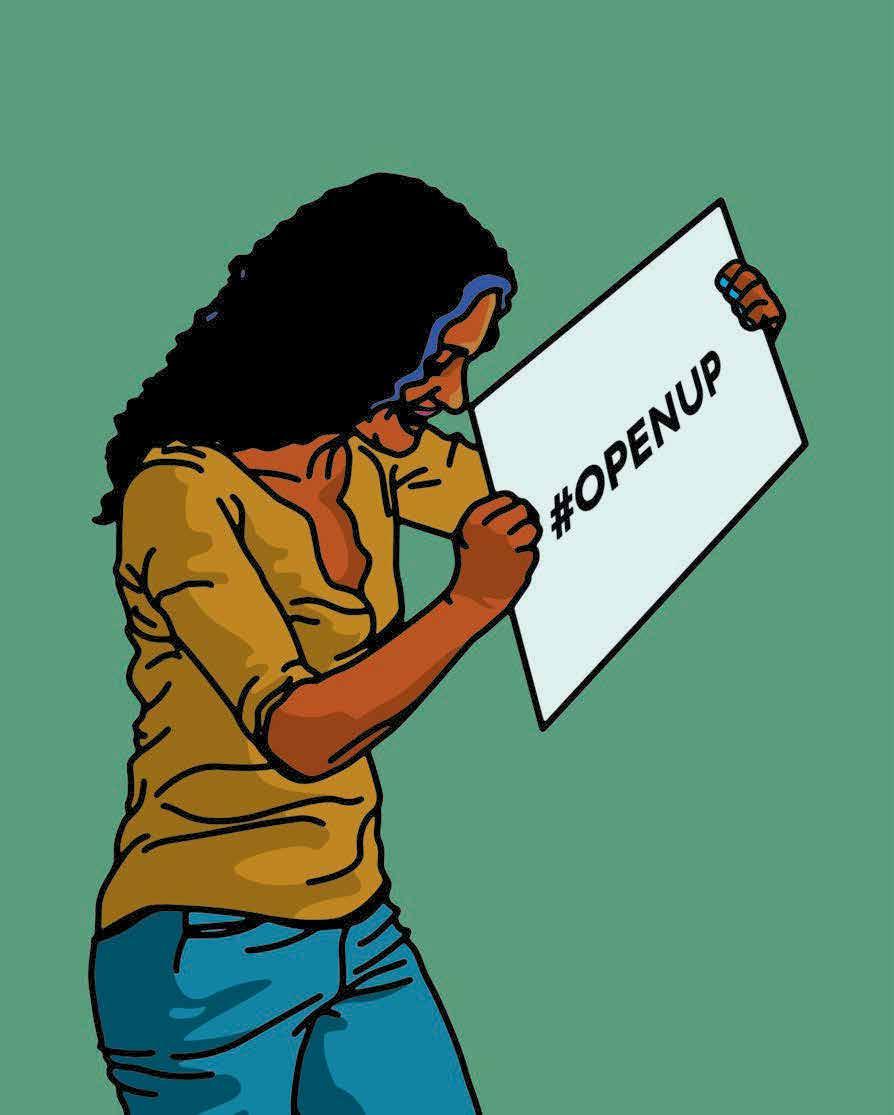
3 minute read
Mim Skinner
“WE NEED TO CHANGE THE FACT THAT PEOPLE DON’T KNOW WHAT GOES ON IN THIS COUNTRY’S PRISONS.” Mim Skinner worked as an art teacher in a women’s prison in the UK. Women in Prison’s Hareem Ghani sat down with her to chat about her new book Jailbirds.
'JAILBIRDS: LESSONS FROM A WOMEN'S PRISON BY MIM SKINNER IS PUBLISHED BY SEVEN DIALS'
Advertisement
Miriam “Mim” Skinner made her debut as an author in July this year with Jailbirds: Lessons from a Women’s Prison - a 300- page memoir telling the story of the rich and varied lives of the women she encountered during her two years as an art teacher and assistant to the chaplain in a women’s prison. More recently, she co-founded the Refuse Café in Durham which intercepts food that would otherwise go to landfill and where she works alongside local mental health services, probation and prison resettlement services to support women leaving prison.
“When I started working in prisons, part of me expected to find this pantomime cast of characters”, Mim writes in the introductory chapter of Jailbirds, “Instead, I met wonderful, funny, brave and resilient people with complicated stories – on both sides of the bars.”
When I sit down with Mim, I ask her to share how she first got involved in prison work. “It’s a fairly unorthodox route”, she replies, “I was involved in a community church attended by lots of women who were struggling with either addiction, homelessness or domestic violence”. She continues, “I met a lot of women who came through the care system or who were homeless, and it actually shocked me that they were going in and out of prison. “We worked out that, if my friend and I shared a room, someone who was homeless
n Just start writing! Write every day to develop the habit of writing. It could be a letter or a diary entry. Alternatively, some people prefer to write down a page of thoughts as soon as they wake up. I was never very good at keeping this up! n Keep a notepad with you at all times: if you think of a good phrase or idea, you can jot it down immediately and expand on it later. n Record events as they happen: on a side note, this can also be quite therapeutic and good for your mental health. n Submit your writing to competitions as often as you can. Your librarian will be able to give you a list of competitions you can enter, but there are also good opportunities in Ready, Steady, Go; in Inside Times and offered by the Prison Reform Trust. This will help you improve your work and will give editors examples of your writing if you decide to send them a proposal. n Submit to the Comment Is Free section in The Guardian. If you want to practise writing blogs or newspaper articles, this is a good place to begin. The Guardian likes to hear from people writing about their personal experiences. n Finally, I may be able to help you with editing: I can also provide introductions to publishers. If you are a woman in prison, write to me at REFUSE CAFÉ, 143b Front Street, Chester-Le- Street, DH3 3AU or send for free to Freepost WOMEN IN PRISON and WIP will pass on to Mim could use the other room.”
Mim worked as an art teacher in prison for several years and it was this experience which inspired her to write Jailbirds. The book, containing personal reflections about the criminal justice system as well as personal contributions from women who have been in prison, provides a glimpse of life inside. From sharing light-hearted content like the “Three Uses for Prison Coffee Whitener” or “Six Uses for Sanitary Pads [in Prison]”, to discussing homelessness, pregnancy and mental health, Jailbirds does not shy away from controversial or hardhitting topics.
It is one of only a handful of books written about the experiences of women in prison. I ask Mim whether she would encourage women with experience of the criminal justice system to write about their personal journeys, “I’m passionate about people sharing experiences”, she replies.
Jailbirds concludes with a chapter entitled “Lessons (I Learnt) From a Women’s Prison”, so I ask Mim to share with me what she learnt from her time working in a women’s prison. “In practical terms,” she replies, “I learnt I’ve never met such patient and good embroiderers as those in prison. But the thing I learnt was about forgiveness, and, I met women who have forgiven things and people that I don’t think I ever could.”






